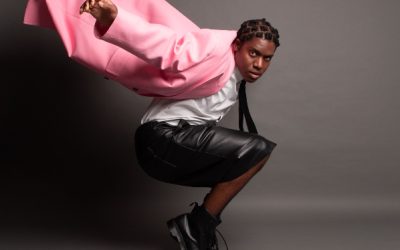After having been a blog, an agency and an events company, indieRepublik is launching indieRepublik Records: a boutique record label set up to highlight the best of the bands we’ve come across after 15 years as a leading indie music blog.
We are extremely proud to announce our first signed artist: Nuno Filipe, an artist from Madeira who has been based in Berlin for the last few years, who performs his atmospheric rock project, with a focus on his extraordinary piano abilities, as Nuno and the End; below is our interview with Nuno Filipe / Nuno and the End.
Raised in Madeira, a chain of islands off the west coast of Africa belonging to Portugal, amid a rich tapestry of musical inspirations, Nuno Filipe underwent significant musical growth, blending classical and jazz influences. His European sojourn from Paris to London culminated in his settling in Berlin, where he encountered both artistic stimulation and disenchantment within the realm of music.
indieRepublik: How did you come to the piano as an instrument? When did you start playing, who influenced you in the beginning?
Nuno: I didn’t care much about playing an instrument until I was 10. In school, the music teacher used to make us sing easy classical melodies while accompanying us on the piano. The melodies stayed in my mind, and the next Christmas, I asked Santa Claus if I could have some kind of piano.
My parents bought me a small electric organ. On Christmas morning, I started playing these melodies while everyone was sleeping. Nothing virtuoso, obviously, but my mother wakes up, comes to my room, and just looks astonished. I didn’t understand why. I was just very happy exploring my new toy. She picks up the telephone and starts ringing her friends, saying, “My son can play the piano….”
I honestly didn’t understand all the fuss. I was totally convinced that EVERYONE could do it. So the process started. My father used to open all the windows in the house just for the neighbors to listen to me playing and exploring, which totally embarrassed me each time. The year after, he bought me some kind of Bontempi keyboard which had some rhythmic presets. It was a novelty. I was so happy. In the same year, came my first piano teacher, who happened to be one of my father’s friends.
It also happened to be the best piano Jazz player on the Island. So, these simple melodies started evolving into Jazz standards, and Jazz came into my life. And what a great school it was. Then it was time to take this shit seriously, so I entered the Islands’ official Music Conservatoire and stayed there for 8 years. Classical, Jazz, and Depeche Mode, among others, blended perfectly in my ears. It was the ’80s. It was all about harmony! What a rich musical decade! Pop songs were actually GREAT SONGS.
At 3 years old, I had a mixture of Beatles, Creedence Clearwater Revival, and kindergarten songs.
indieRepublik: You’re from the island of Madeira, belonging to Portugal but somewhere west of the coast of north Africa. Tell us something about the island(s), what it was like growing up there and what the music scene is/was like there.
Nuno: I was born in the late ’60s. The Beatles were in the news, Apollo 11 and the Moon landing too.
I grew up on this tiny Island in the middle of the Atlantic, listening to a wide variety of music. My mother used to work in a record store, and my favorite ‘toys’ were records. So, at 3 years old, I had a mixture of Beatles, Creedence Clearwater Revival, and kindergarten songs. When going to any of my parents’ friends’ houses, the first thing I would look for was the records. And while people would be talking, eating, drinking, and socializing, I was completely immersed in the corner of the room exploring music.
Our home record player had a mechanical problem that was never fixed. The rotation was slower than the usual tempo. So, while music sounded brighter and faster on the radio (which I didn’t like it), my ears got used to this home “Downtempo”, which sounded darker and mellower. Somehow, it provoked in me an unusual sensorial experience. It was very common for me to get goosebumps when listening to music, especially Kate Bush. This is what I call ‘beautiful darkness,’ and it lasted for about 16 years until the Compact Disc came out.

Our home record player had a mechanical problem that was never fixed: the rotation was slower than the usual tempo. So, while music sounded brighter and faster on the radio (which I didn’t like), my ears got used to this home “downtempo”, which sounded darker and mellower.
In the realm of the music scene, the final concert in Madeira back in 2019 was announced as our farewell performance. Many fellow musicians and friends attended. Cris and I felt as though we were carrying their aspirations with us. They collectively expressed, ‘You have to succeed. If you do, we all get there! We are counting on you.’
On this island, no one has attained a notable international music career. While there were notable musicians in the past, such as the iconic “Max,” who performed extensively for Portuguese communities worldwide, as well as some Fado singers and local traditional dance groups, and “Luis Jardim,” a musician with a nearly invisible career working behind the scenes with international bands like the Rolling Stones and Paul McCartney, none managed to truly internationalize themselves. That was the past.
Today, we have rock bands like “DUL” and “The Forgotten Roads” producing impressive work. In the realm of jazz, the “Mano a Mano” brothers stand out as exceptional guitarists, among many others who continue to pursue their musical passions.
It is undoubtedly a beautiful island, but, as one of those musicians told us before our departure while gazing at the sea on a sunny day, ‘Because of this beautiful landscape, we often overlook the rest of the world.’ Nevertheless, it is populated with numerous talented musicians who harbour dreams of establishing careers beyond the island. This has always been a utopian subject on the island; somehow, the path to breaking out remains elusive. We were not born entrepreneurs.
indieRepublik: You studied I think piano as well as composition at the Convervatory there. Could you tell us about this experience and how it influenced your music and approach to composing?
Nuno: During my 8 years at the Madeiran Conservatory, my focus was on the piano, all the while indulging in a significant amount of personal composition. However, I began to feel somewhat constrained towards the end, prompting my decision to venture to Paris and further my studies. This time, the emphasis shifted to composition.
So I spent 5 years in Paris, had a brilliant harmony teacher, a lousy piano teacher, 2 french girlfriends (not at the same time, of course), and got my Composition master degree.
The melancholic atmosphere of Paris proved highly inspirational, yet after half a decade, a craving for something more dynamic led me to relocate to London. This marked a radical departure from classical composition to the world of Techno. London, a city of experimentation and the stage for unimaginable situations, is so unpredictable that it’s often best left to one’s imagination.
It was in London that “Nuno and the End” began to take shape, originating in a recording studio owned by a close friend. This studio was located in an warehouse, doubling as both my living space and music-making haven. I felt so attuned to the universe that the creative process flowed effortlessly.
indieRepublik: Now you’re based in Berlin…how did that come about?
Nuno: After my time in London, I returned to Madeira, where my new and wonderful project was the birth of my daughter. Eighteen years later, I turned to my girlfriend and my daughter and declared, “It’s time for us to get out of here. We are getting NOWHERE! But… where should we go? I knew it was Europe. But not London, too aggressive. Not Paris, too passive. Where is the center of Europe? And a little voice from Amsterdam whispered: Berlin.
indieRepublik: How do you find the music scene in Berlin / Germany?
Nuno: I love the city, and the people here make for a fantastic audience. They are remarkably respectful towards the artist, listening carefully and with genuine interest.
indieRepublik: Who are your biggest musical influences?
Nuno: I cannot pinpoint specific influences since I’ve absorbed inspiration from numerous artists. However, to name just a few, I could mention Bjork, Pink Floyd, Depeche Mode, Kate Bush, and Tori Amos.
indieRepublik: How would you describe your approach to songwriting and composing?
Nuno: Creating music is comparable to the act of writing a book. I still view an album as a significant portrayal of the artist’s inner self. Albums, in my perspective, are analogous to books—they should unfold a narrative.
Our intention is to communicate with people, to establish a connection, and to share stories, challenges, solutions, misfortunes, and moments of joy.
indieRepublik: After your last album Infinity, you’ve got a new album in the pipeline called Beacon. What can we expect from that? How is it similar or different from Infinity?
Nuno: “Beacon” is a compilation of past impressions. I selected songs from the first two albums, asked the fans to choose their favorites, picked 10, and remixed everything, including creating new versions for some tracks. This is a completely different approach compared to the previous “Infinity,” which was entirely conceptual.

indieRepublik: You’ve just signed to indieRepublik Records – and of course we’re proud to have you on board as the first signed artist. What do you see as being the advantage for an independent artist of being on a label as opposed to doing everything on one’s own?
Nuno: Having additional assistance and fresh ideas is a welcome change. Cris, my partner, and I have always been accustomed to doing everything ourselves — it’s been the “DIY bitch” all along. So, I am genuinely grateful for the extra help coming our way.
indieRepublik: If your music was a movie, which genre would it be in?
Nuno: Definitely contemplative.
Everything leans towards landscape viewing, crowd gazing, or starry skies… everything should guide towards an introspective experience.
indieRepublik: Tell us a secret about yourself.
Nuno: It’s all encapsulated in my music albums. Give them a listen, and you’ll uncover all my secrets.
indieRepublik: What music do you listen to when you’re touring?
Nuno: My own. Simply because I’m a intolerable perfectionist, I find myself listening and mentally reviewing passages for the concerts.
indieRepublik: How do you feel about covering a song?
Nuno: I don’t particularly enjoy it. However, rearranging it to create a new version—that, yes! Then it transforms into a collaboration between the two artists. For instance, with “Space Oddity” in the “Infinity” album, I found myself having a conversation with Bowie in my head during the process: “So what do you think, bro? I’m going to change these three chords because, honestly, they weren’t great in your original. You know that, right?” And then he replies, “Love it. Do it!”
indieRepublik: Do you prefer to play big festivals / stages or smaller club gigs?
Nuno: prefer to perform for engaged audiences, whether it’s a room with 20 people or a field with 20,000 people.
indieRepublik: In ten years you look back to today and think:
Nuno: Shit… did getting old just happen???
indieRepublik: How would you like to see the music industry changing?
Nuno: Awwww…. the QUESTION! Just put really good musicians in front of it, and you’ll notice a BIG change!
You might think: “But a musician is not necessarily a great economist; they wouldn’t know how to make money.” The point is to stop promoting shit content. A musician would choose the right projects, turn to the economist, and say, “This is what you have to sell.”
The same principle applies to politics: Imagine a government led by artists and philosophers. They would collaborate with economists, of course, but idealism would surely emerge. The focus would shift to living for a better present, not just a “better future”. Politicians often demand sacrifices for a brighter future for our children, and then, 20 years later, the children of those idiots repeat the cycle. I am still waiting for a government that prioritizes a better present, not the ultra-clichéd empty promise of some elusive future that we all know it’s not going to happen.
indieRepublik: a. What is your preference and b. Where do you think the music industry is headed: NFTs, mp3s, more streaming, less streaming, CDs, vinyl, cassettes, something else entirely?
Nuno: Unfortunately, I don’t envision a bright future for music. Ideally, traditional standards like physical distribution and live concert performances would be perfect for any musician, putting a halt to this relentless digital capitalism.
indieRepublik: How would you define indie? What do you personally think it means?
Nuno: I would say it started with a depreciative connotation, like, if you’re not on a major label, then… you’re crap, then… garage band, then… indie. Then it became a genre—indie rock, and now it’s cool to be indie. However, it has always been about being independent from the industry. For some, it’s a choice; for many, it’s the only solution.
Do I like being independent? Absolutely! Would I like to have the support of a major investor to lead a comfortable life without struggling to pay the bills and only create music? Also. Could I have both? That would be an upgrade to the genre. We would call it “The Perfect Indie”.
Go to the Nuno and the End Linktree to listen, love, hang out.



0 Comments